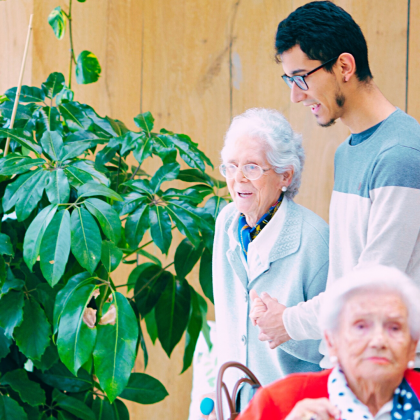The current draft agreement proposed by the government, with its lights and shadows, represents a qualitative leap forward compared to the model that still prevails in the sector. However, it seems that so far the necessary consensus has not been reached to move forward from different realities towards the same purpose.
This group therefore demands that political leaders promote and lead this necessary cultural change, reaching the necessary consensus to develop a long-term care system comparable to that of our European counterparts.
They point out that now is the time for real commitment, for knowledge-based decisions, for a clear vision and for truly putting people at the centre of political priorities. Because people deserve it. Because care must be understood as a social and ethical issue and, therefore, of the utmost interest and political responsibility.
The aspiration to promote this transformation of long-term care has been accompanied by clear and explicit recommendations from the Community body, as well as significant funding allocations (Next Generation) aimed at making possible a change of model that calls for a shift in two directions.
-
On the one hand, a decisive development of home-based services, coordinated at the community level, integrating flexible and diverse support - in addition to the classic social and health services - in order to guarantee what people want, which is nothing more than to be able to remain in our environment and socially connected.
-
On the other hand, to face a process of deinstitutionalisation, which is required by art. 19 of the Convention on the Rights of Persons with Disabilities (UN, 2007). A proposal that aims to transform the current residential places into domestic, homely environments, modulated in small groups of people in a situation of serious dependency and, of course, progressively providing more individual rooms, an essential element to guarantee the privacy of those who live there.
Full Manifesto here



.png)